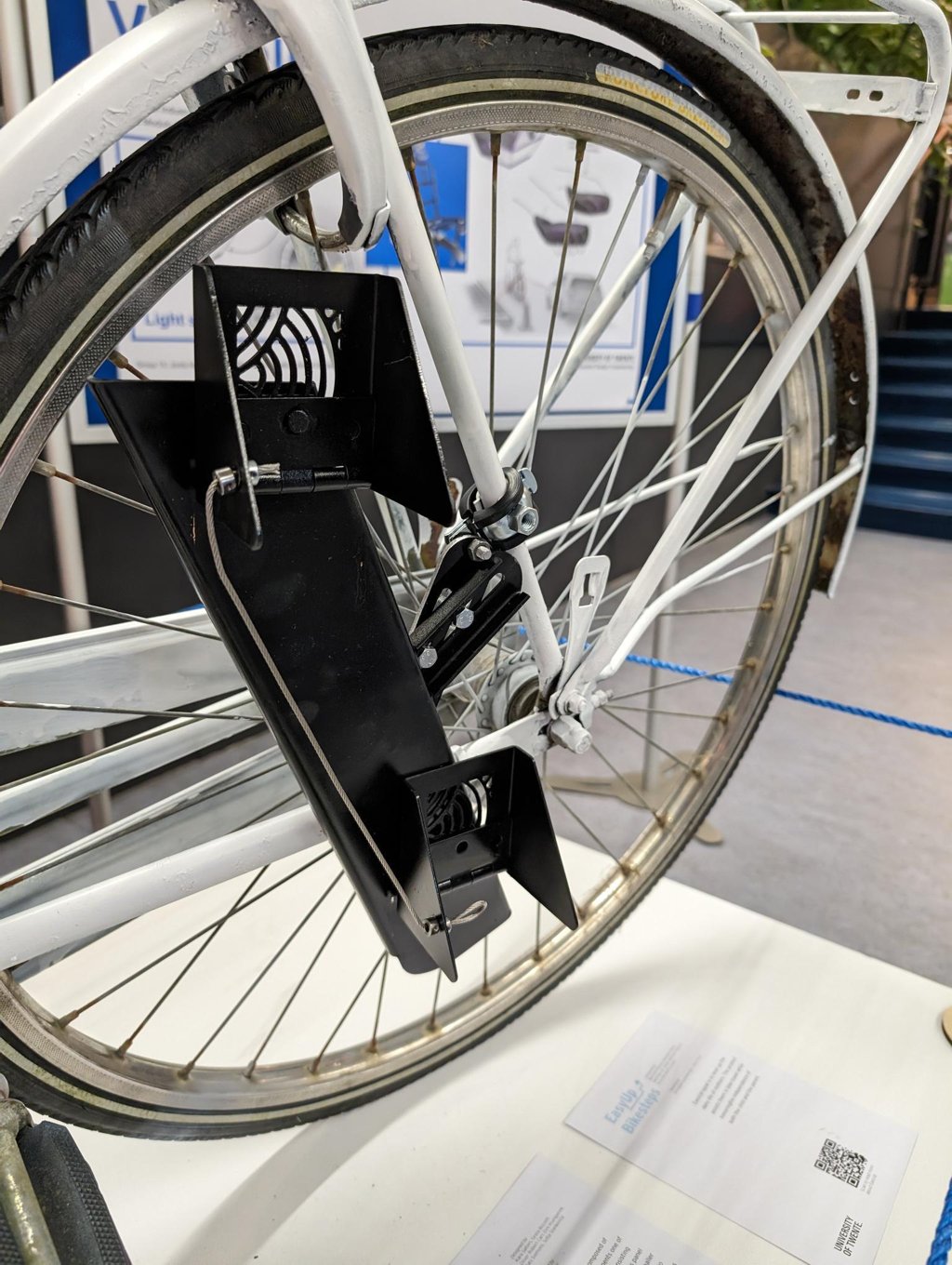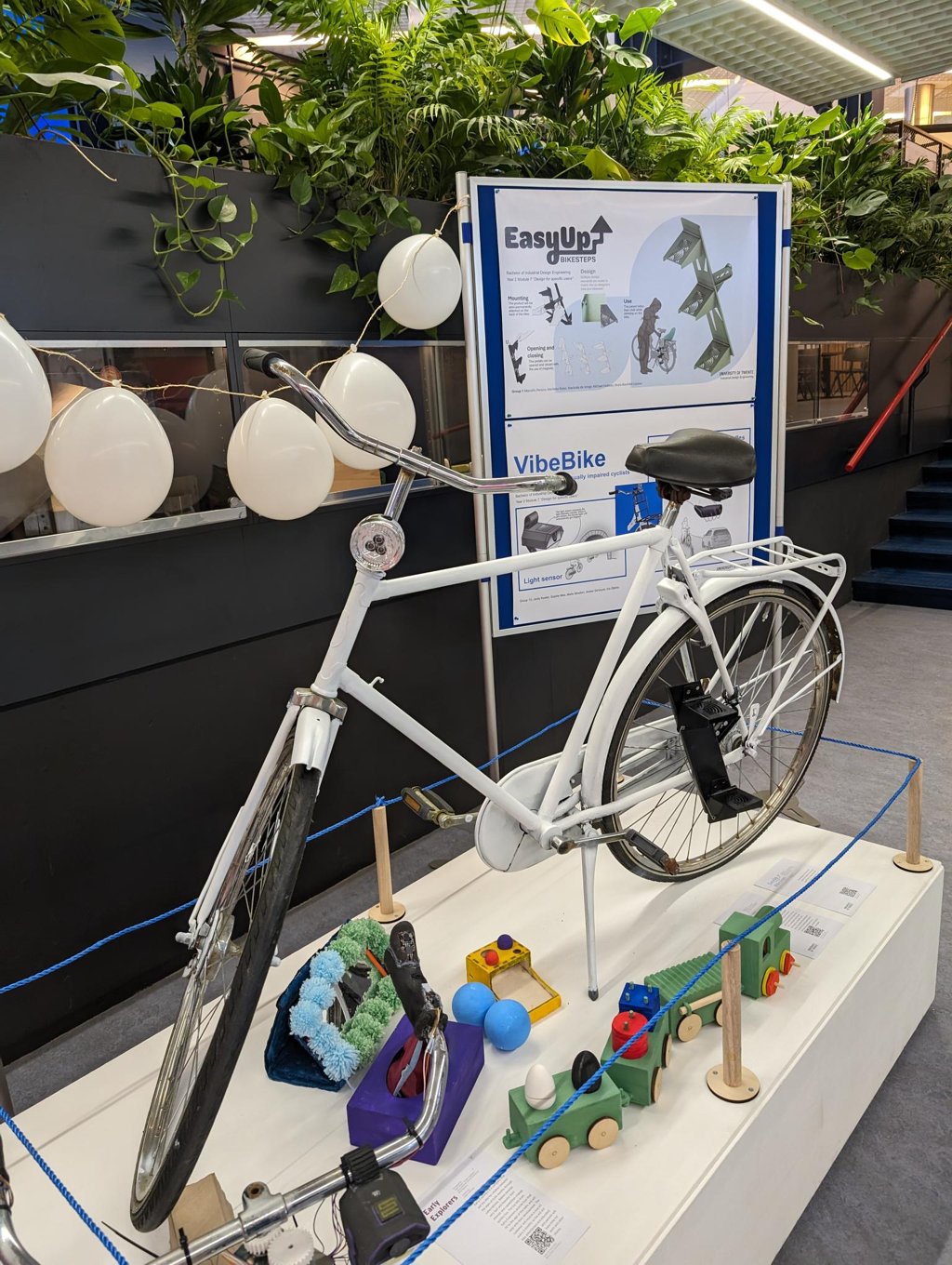Marlieke Roest, Marlinde de Jonge, Marcello Persico, Nuria Bouhdid Lozano, Michael Hobson
EasyUp was specifically designed in collaboration with a user to improve their quality of life. The user in this case was a pregnant woman with a toddler, who experienced lower back pain, a common issue during pregnancy and when carrying young children.
The main focus was to look beyond superficial problems and support this pregnant woman on a deeper level. We achieved this by firstly gaining a deeper understanding of her values and incentives and secondly, involving her in the process as a team member. This knowledge was then transformed into a product to improve her daily life.
How to address underlying problems instead of superficial ones?
In phase 1, brainstorming sessions and going through a day in her life helped us gain information about the pregnant lwoman's life, struggles, and aspirations. This led to formulating the project’s goal: supporting her independence where it is compromised by the physical consequences of pregnancy.
In phase 2, through open conversations with the pregnant woman and her partner, ideating, recreating the designs in clay to understand each other better, and prototyping,we were able to better define the 'end product'.
We discovered that one of the most strenuous activities was placing her toddler in a bicycle seat. This led to the creation of EasyUp, a foldable set of stairs that assists in safely and easily placing a child in a bicycle seat. The product is portable and can be conveniently attached to the bike.
The relevance of EasyUp Bikesteps lies in its focus on independence and accessibility for people outside the normal target group. By supporting the mother in getting her two-year-old daughter on the back of the bike, it relieves her from back pain while reinforcing their autonomy and confidence to go wherever they want, on their own, as any other would.
The design has a low-cost production, making the product accessible to people from various financial backgrounds. Due to its easy application, the bikesteps can benefit a wider audience facing similar challenges. Any parent, grandparent or guardian who experiences difficulties in lifting their child in the bikeseat can become more self-reliant in their daily lives.
The product is equal in accessibility and useability while fostering equality in self-reliance throughout society.


